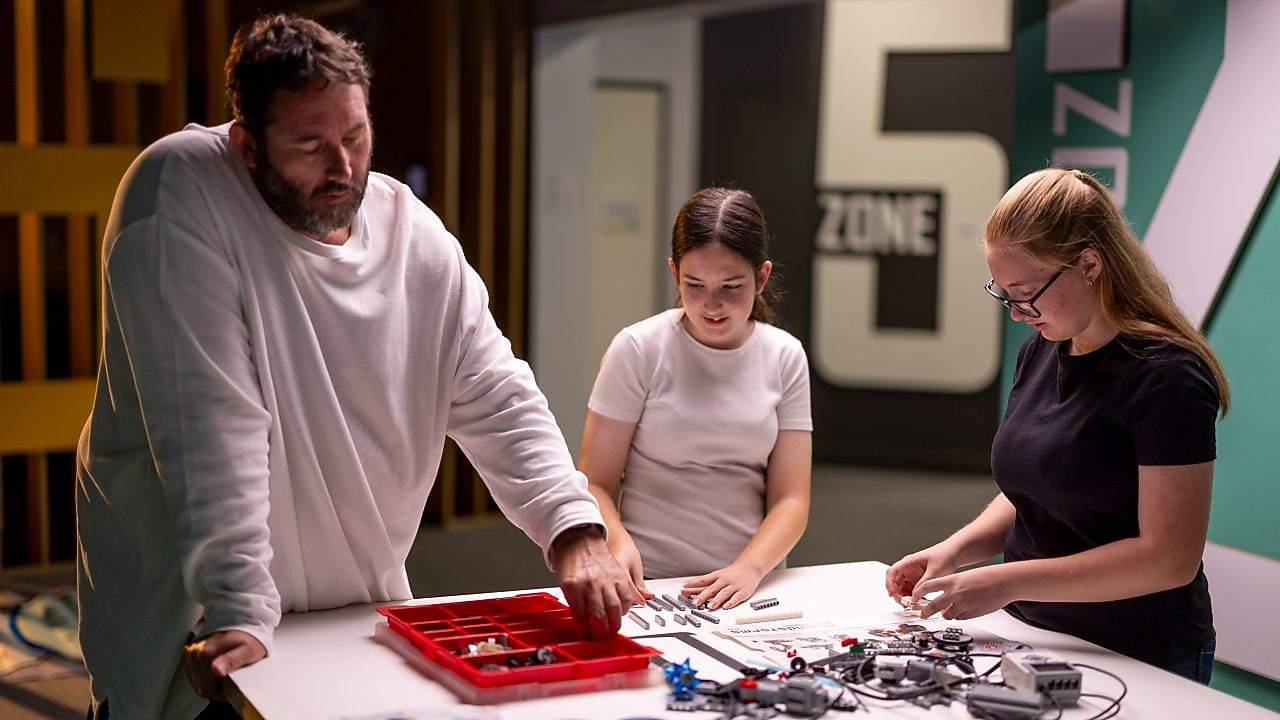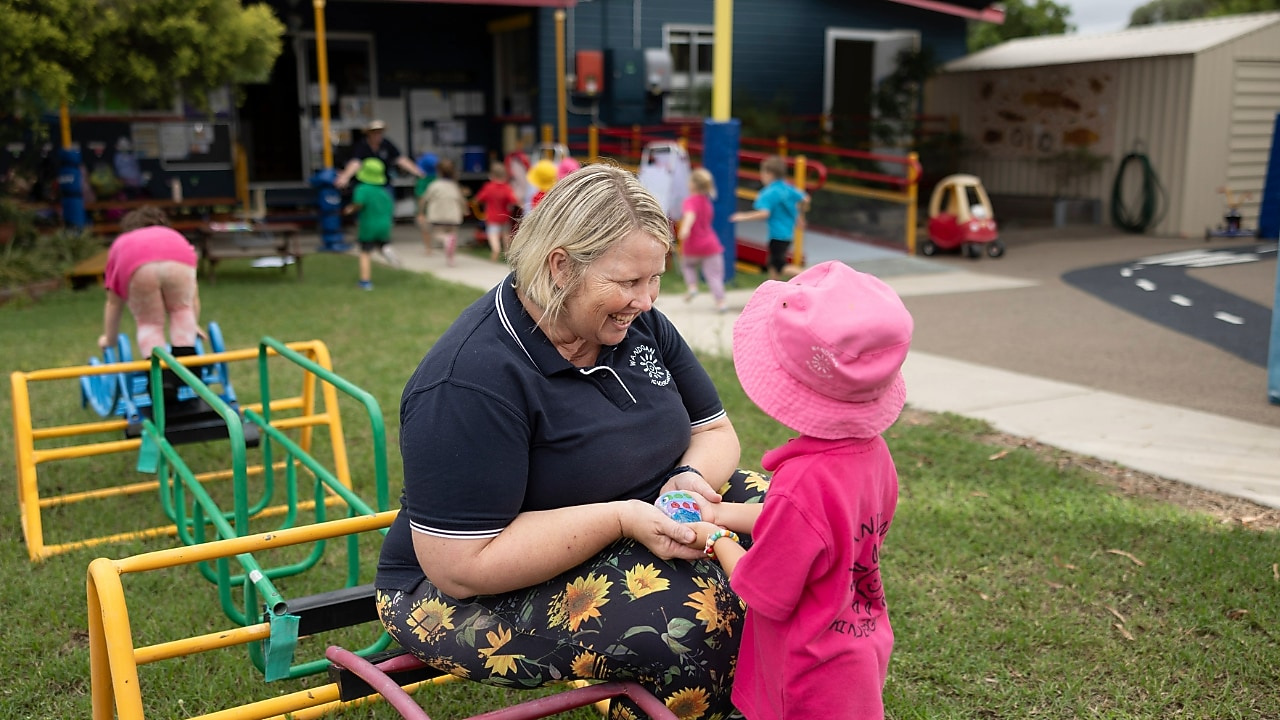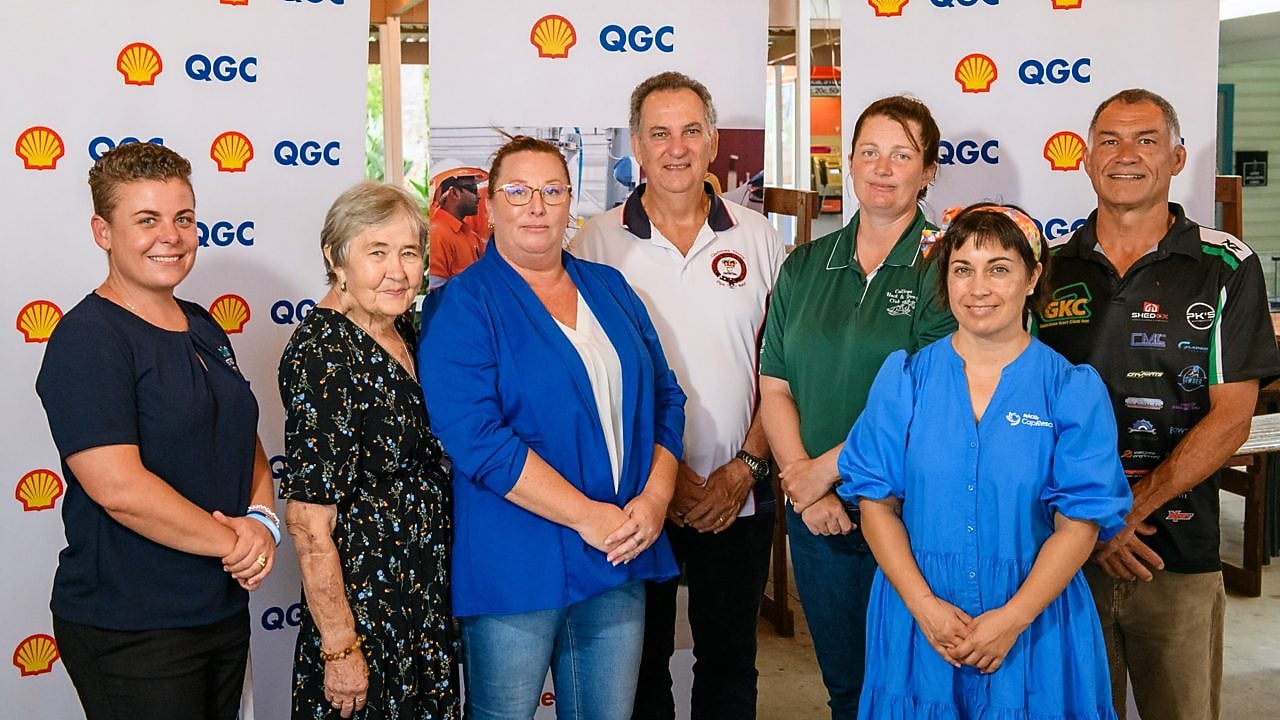
Igniting a passion for a STEM career
In Queensland’s Gladstone region, Shell supports the Future Makers program with Queensland Museum to encourage students to take up science. Discover how it helped two students grow their passion for science, technology, engineering and mathematics (STEM), while being challenged to develop a solution for a local biodiversity issue.
In the town of Calliope, just outside Gladstone, the Future Makers program is reinvigorating a love of STEM for students and educators alike, which is having a positive impact outside of the classroom and putting STEM skills to practical use.
Powering passion for STEM
Calliope State High School teacher Luke Houweling knows there’s much more to STEM beyond what he teaches in the classroom. He became involved in the Future Makers program to give students the chance to take their love of science outside the four walls of the classroom, by working on a project that makes a difference in their community. Luke Houweling encouraged his students to participate in the STEM Innovators initiative as part of the Future Makers program. “It provides free rein in a STEM-based project – it allows students drawn towards STEM to explore an issue in their local area and come up with some kind of solution,” Luke Houweling said.
Watch to find out more
Read the transcript
Read the transcript
Title: Igniting a passion for a career in STEM | The power of local community
Duration: 3 minutes and 38 seconds
Description:
In Queensland’s Gladstone region, Shell supports the Future Makers program with Queensland Museum to encourage students to participate in science subjects. Discover how it helped two students grow their passion for science, technology, engineering, and mathematics (STEM) while being challenged to develop a solution for a local biodiversity issue.
Future Makers Transcript
DESCRIPTION:
The seed heads of tall grass stalks sway in the golden sunshine.
A bearded man, Luke, stands and smiles near some tall gumtrees. He wears a white shirt.
LUKE HOUWELING:
As a curriculum teacher, we can get lost in having to just teach content because the curriculum says we have to do it.
DESCRIPTION:
A teenage girl has blonde hair and wears black-framed glasses. She stands at the grass stalks with Luke and another teenage girl who has long dark hair.
ANNABELLE:
Doing Future Makers allowed us to expand our knowledge. It's just a whole new way of learning.
LUKE HOUWELING:
It's preparing the students for a future that doesn't even exist yet.
DESCRIPTION:
A town nestles at the hook of a river.
TEXT: Gladstone, Queensland
Elsewhere, cars drive across a bridge that curves over a river near some moored yachts.
Luke sits at a table inside a classroom.
TEXT: Luke Houweling – Future Makers Mentor and Head of Department from Calliope State High School
LUKE HOUWELING:
Gladstone's a unique area. With our focus on industry so much, if we want our students in the local area to work in local careers or local jobs, they need to have a working knowledge of technology.
DESCRIPTION:
A boy fishes on the banks of the river.
A kookaburra sits atop a glowing streetlight.
LUKE HOUWELING:
Companies like Shell obviously can see the local community keeps local industry going.
DESCRIPTION:
A large cargo ship is moored at a dock leading towards a gas plant. A tug boat sprays water into the air as it chugs along nearby.
The blonde and dark-haired teenagers from earlier crouch beneath a tree to examine the undergrowth.
Later, they walk along a gravel path and point at various things as they walk and talk.
LUKE HOUWELING:
Future Makers provides free rein in a STEM-based project. It's a programme that allows students drawn towards STEM to explore an issue within their local area and come up with some kind of solution.
DESCRIPTION:
Later, the girls crouch near some grass stalks at the edge of an open field.
LUKE HOUWELING:
A lot of the credit goes to the Queensland Museum and the facilitators of Future Makers in how they source and connect the student groups with people that would be able to push them and lift them to that next level.
DESCRIPTION:
The two girls sit in a large lecture theatre.
TEXT: Annabelle & Emily – Participants in the Future Makers STEM Inventors Challenge from Calliope State High School
ANNABELLE:
We were thinking about the biodiversity of Queensland and specifically invasive species.
LUKE HOUWELING:
These two young ladies identified this particular species of grass that is a significant pest.
EMILY:
Giant rat's tail grass is an invasive species. You see it every day. It's a really big problem.
DESCRIPTION:
Annabelle and Emily examine some grass stalks.
Later, they stand and talk to Luke.
ANNABELLE:
It just takes over very quickly. The root systems on them actually kill out all the other native plants.
LUKE HOUWELING:
Are there anything that they've done to try and stop the spread?
EMILY:
It probably would be... We thought we'd come up with something that could get rid of it, in a way that wouldn't spread it.
Annabelle and Emily stand at a table and assemble various LEGO parts together.
LUKE HOUWELING:
They came up with a robot that they creatively named Lil’ Rooty.
EMILY:
Lil’ Rooty can just go around wherever there is an infestation of this plant and recognise the plant and be able to contain those seeds properly.
LUKE HOUWELING:
Cutting edge in terms of agricultural tech. It definitely shows them that they can do so much more than just walking into a classroom, taking down some notes.
ANNABELLE:
Yeah, but we could make it out of a Lego... Oh, hey look, another little shovel. We can connect it to this bit. Oh, yeah.
DESCRIPTION:
Luke smiles as he watches Annabelle and Emily build with the LEGO.
LUKE HOUWELING:
This program connects student groups with local representatives from Shell. When we showed what these students were doing in terms of some of the coding and things in the school-based context, they kind of went, “Wow, I wish my trainees came in with this level of knowledge".
EMILY:
The meetings with professionals in the area showed me a lot of new career paths that I could take.
ANNABELLE:
Future Makers allowed us to learn and expand our knowledge.
EMILY:
Connect with other people who share our ideas to create something new.
DESCRIPTION:
Luke, Annabelle and Emily examine the tall grass stalks in the sunshine.
LUKE HOUWELING:
There's regional importance, but it's also globally important, as well. Future Makers will help students to be contributors to the real world. I'm looking forward to seeing high school students rolling up their sleeves, getting in there and going, Yeah, there's a problem there, but we can fix it."
DESCRIPTION:
An aerial view of Luke, Annabelle and Emily at the grass stalks.
TEXT: Future Makers is a joint partnership with Queensland Museum and Shell’s QGC business
The trio walk along a dirt track beneath the yellow and red Shell logo. White text below reads ‘The power of local community’.
(END OF RECORDING)
Solving a grassroots problem – literally
Students Annabelle and Emily from Calliope High School are Future Makers STEM Innovators participants, looking to use their skills to make a difference. “We were thinking about the biodiversity of Queensland and specifically invasive species.”
They identified a problem in their community – dry rats tail grass, to be exact. Its roots impact local biodiversity by killing native plants. The students decided to use their skills to tackle the problem. “We thought we’d come up with something that could get rid of it and stop its spread.”
Enter Little Rooty, the robot created by Annabelle and Emily to move through areas infested with the weed, identify it and contain its seeds. It combines agricultural technology with coding and greatly impressed the Future Makers team at Queensland Museum and Shell.

A focus on real-world connections
We know we need the best and brightest minds to fill jobs of the future. We want the communities where our businesses are located to receive every opportunity to be part of our future success. The Future Makers program provides educational opportunities and importantly creates real-world connections for students with Shell staff and local professionals, demonstrating the career paths available to them. As Luke says, “It’s preparing students for a future that doesn’t even exist yet.”
Since launching the Future Makers program in 2015, more than 600 teachers have completed professional development workshops and more than 17,000 students have participated in one or more of the initiatives in the program.

